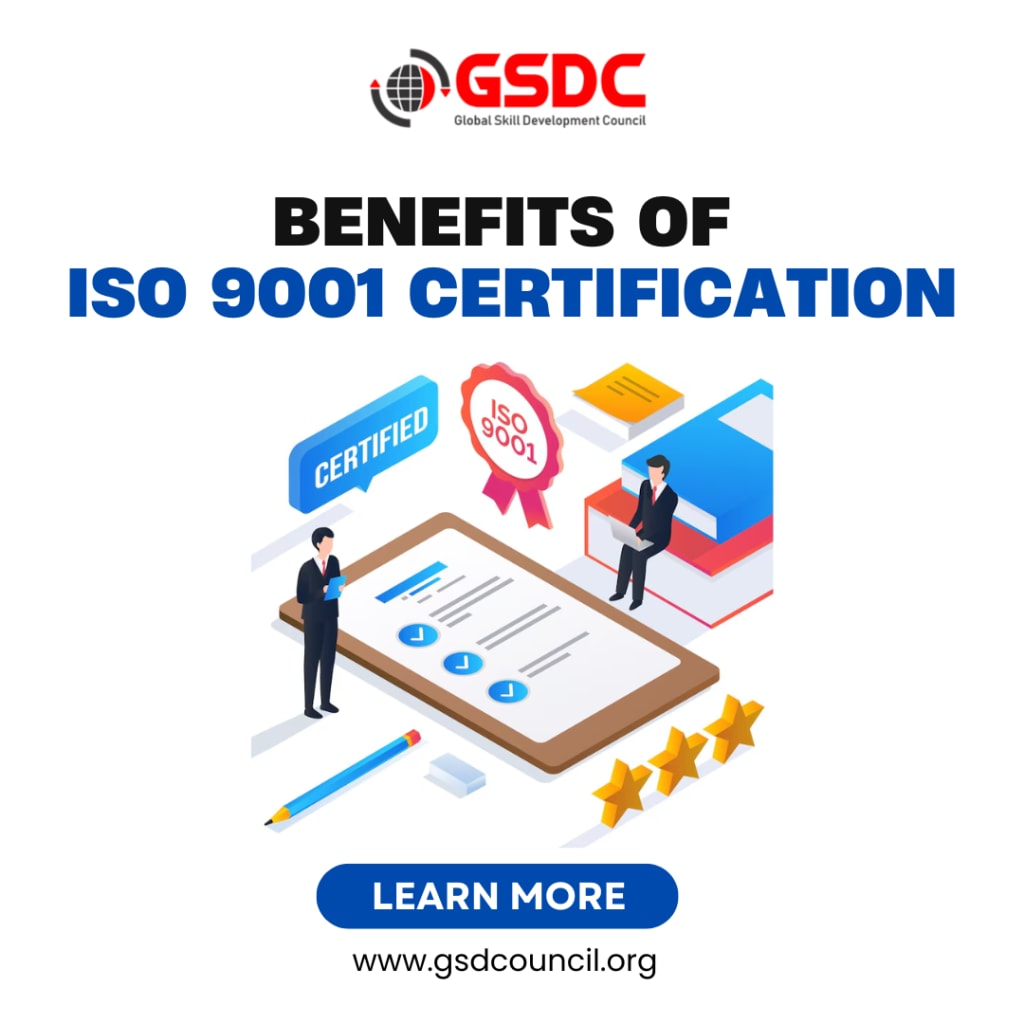Benefits of ISO 9001 Certification
ISO 9001 certification offers numerous benefits to businesses, including improved credibility, customer satisfaction, efficiency, risk management, and competitiveness.

ISO 9001 certification offers numerous benefits to businesses, including improved credibility, customer satisfaction, efficiency, risk management, and competitiveness. It serves as a strategic tool for driving organizational growth, enhancing performance, and achieving long-term success.
ISO 9001 certification offers a range of benefits for organizations, regardless of their size or industry. Here’s an in-depth look at the key advantages:
Enhanced Credibility and Reputation:
Market Recognition: ISO 9001 certification is globally recognized and respected as a mark of quality management excellence. It signals to customers, partners, and stakeholders that your organization is committed to high standards.
Competitive Advantage: Certification can differentiate your organization from competitors who may not have ISO 9001, making your business more attractive to potential clients and partners.
Improved Customer Satisfaction:
Customer Focus: ISO 9001 emphasizes understanding and meeting customer requirements, leading to higher satisfaction levels.
Consistent Quality: By standardizing processes, organizations ensure that products or services meet customer expectations consistently, reducing complaints and returns.
Operational Efficiency and Cost Savings:
Process Improvement: Implementing ISO 9001 helps organizations streamline processes, reduce waste, and optimize resource use.
Cost Reduction: Improved efficiency and reduced errors translate into cost savings, enhancing profitability.
Access to New Markets:
Market Opportunities: Many industries require or prefer suppliers with ISO 9001 certification. Achieving certification can open doors to new markets and customers.
Global Acceptance: As an internationally recognized standard, ISO 9001 certification facilitates entry into global markets.
Risk Management and Compliance:
Risk Mitigation: ISO 9001 helps organizations identify, assess, and manage risks systematically, reducing the likelihood of quality issues.
Regulatory Compliance: The standard ensures that organizations comply with relevant laws, regulations, and contractual requirements, minimizing legal and regulatory risks.
Employee Engagement and Satisfaction:
Involvement: ISO 9001 encourages employee involvement in quality management processes, fostering a sense of ownership and responsibility.
Training and Development: Certification often involves training programs that enhance employees’ skills and knowledge, leading to higher job satisfaction and retention.
Continuous Improvement:
Kaizen Culture: ISO 9001 promotes a culture of continuous improvement (Kaizen), encouraging organizations to constantly seek ways to enhance processes and performance.
Feedback Loops: Regular audits and reviews ensure that feedback is incorporated into the system, driving ongoing improvements.
Improved Supplier Relationships:
Supplier Evaluation: The standard requires organizations to evaluate and manage their suppliers effectively, ensuring that they meet quality standards.
Stronger Partnerships: Improved quality management processes can lead to stronger, more reliable relationships with suppliers.
Effective Decision Making:
Data-Driven Decisions: ISO 9001 emphasizes evidence-based decision making, ensuring that decisions are based on accurate data and thorough analysis.
Improved Planning: Better data and insights lead to more effective strategic and operational planning.
Customer Confidence and Trust:
Reliability: ISO 9001 certification reassures customers that your organization has robust quality management processes in place, building trust.
Customer Loyalty: Consistent quality and continuous improvement efforts can enhance customer loyalty and long-term relationships.
ISO 9001 certification helps organizations improve their processes, enhance customer satisfaction, and gain a competitive edge in the market. It provides a framework for managing quality systematically, driving efficiency, and fostering a culture of continuous improvement, ultimately contributing to the organization’s success and sustainability.
About the Creator
Enjoyed the story? Support the Creator.
Subscribe for free to receive all their stories in your feed. You could also pledge your support or give them a one-off tip, letting them know you appreciate their work.





Comments
There are no comments for this story
Be the first to respond and start the conversation.